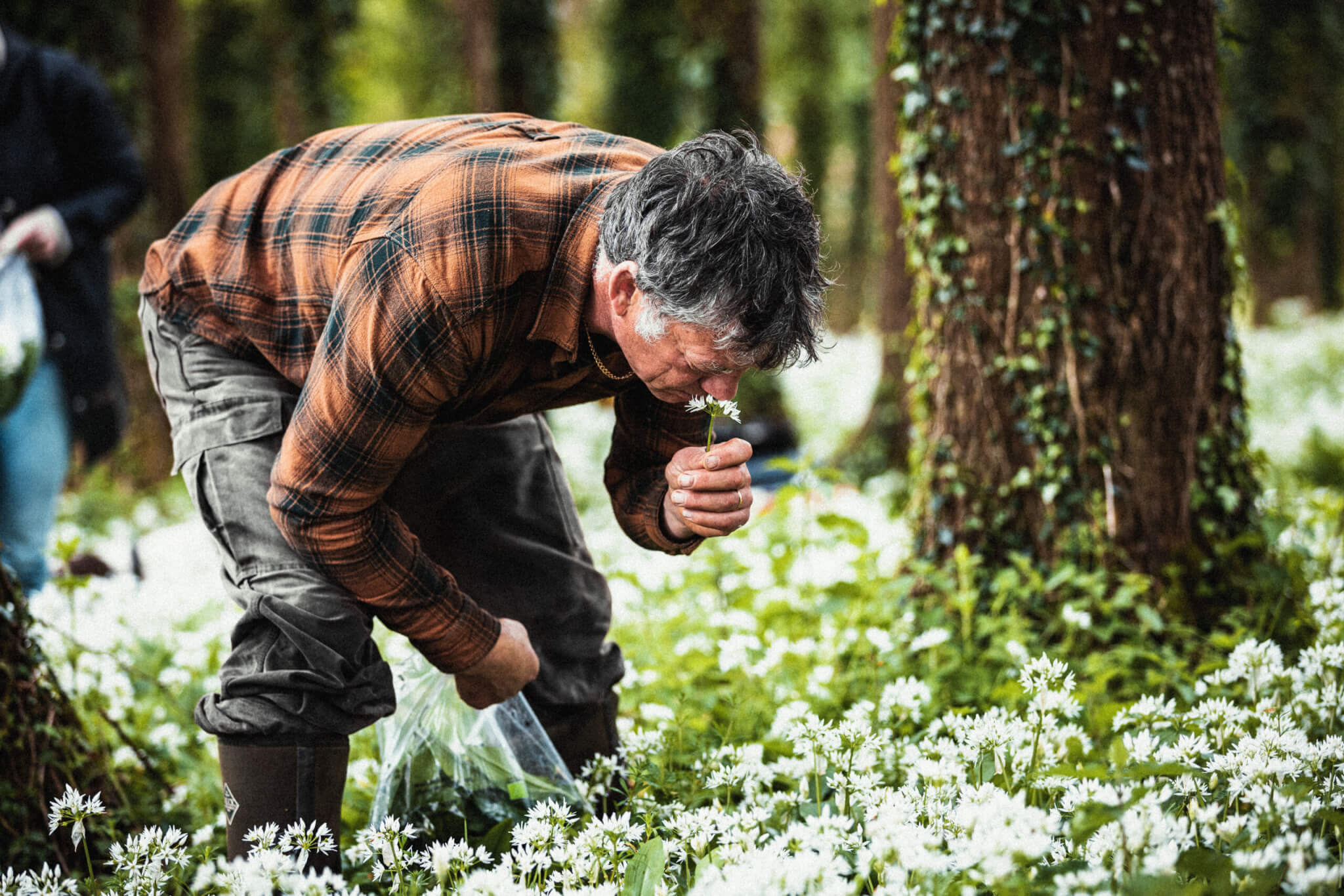January’s first gale finally toppled one of our oldest field oaks. It has stood alone for all my 57 years, increasingly skeletal, surrounded by successive crops of grass, rhubarb, chard, cabbages and grass again. Unlike the more aggressively colonising ash tree, which stunts the growth of any crop within 20 metres, oaks allow grass and vegetables to grow right up to their branches; they seem happy to share, knowing that they will outlive their competitors. In my early years, resentful of the cropping area lost to this old oak, we probably took advantage of its good nature and ploughed too close. It pains me now to think my greed may have accelerated the tree’s end by damaging its roots.
It is said to have taken an incredible 1000 oaks to build Nelson’s HMS Victory, and 2000 plus for the larger ships of the line, leading to a severe national timber shortage by the end of the Napoleonic Wars. Riverford is rich in mature 200- to 300-year-old oak trees, probably planted in response to this shortage. Most stand alone in hedges or fields, where the absence of nearby trees gives them a stately grandeur. Their forms, though instantly recognisable for the sturdiness of their trunks and lacelike finery of their branches, are incredibly varied, shaped (like all of us) by a combination of genetics and growing conditions. Each tree is an ecosystem, home to a myriad of fungal and insect parasites, to little deleterious effect; time and evolution have resulted in tolerant, if not quite symbiotic, co-existence. They have provided grace, shade, shelter and food for centuries… and this one, now fallen, will heat my home for a year or more. My veneration of the ancient trees grows with every year I age myself. In my animist moments, I wonder how the survivors will judge our brief custodial tenure of the landscape they grace.
E-receipts
We have finally phased out the paper receipts in all areas (saving 2.6m bits of paper a year). Most of you have responded that this was long overdue. You will get an e-receipt the morning of your delivery – as long as you have an email registered with us. If we don’t have an email for you, or if you have any other questions, please call your local veg team or the team at the farm.














0 Comments